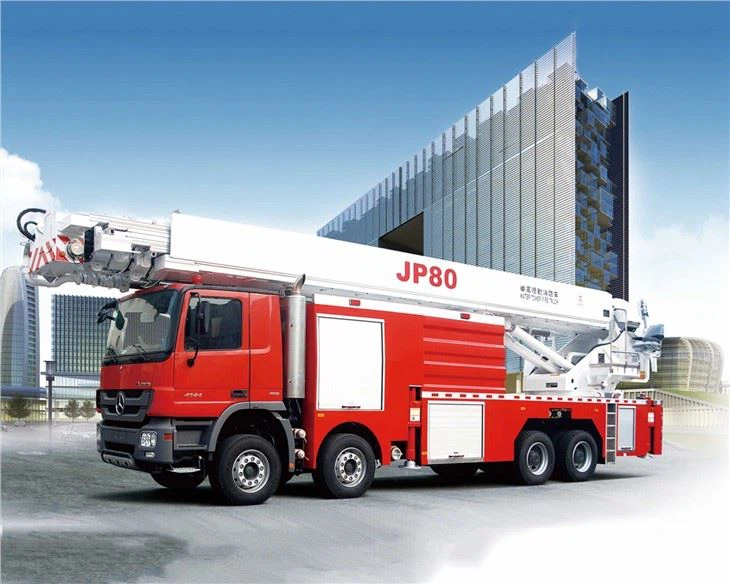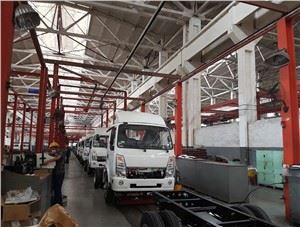Ultimate Guide to Container Lifting Trailers

Introduction
Container lifting trailers play a crucial role in the transport industry, facilitating the efficient movement of shipping containers. These specialized trailers are essential for logistics operations, enabling companies to streamline their processes. This comprehensive article delves into various aspects of container lifting trailers, including their types, functionalities, benefits, and best practices for usage. Whether you’re a logistics professional or just curious about the mechanics of transport, this guide will equip you with valuable insights.
What is a Container Lifting Trailer?
A container lifting trailer is a vehicle designed specifically for lifting and transporting shipping containers. These trailers feature hydraulic or mechanical systems that allow them to engage with containers, making loading and unloading simple and efficient. The primary purpose of container lifting trailers is to minimize the need for additional equipment like cranes or forklifts, thereby speeding up the transport process.
How Container Lifting Trailers Work
Container lifting trailers use a combination of hydraulic systems and mechanical components to lift containers off the ground and onto the trailer bed. The user drives the trailer to the container location, aligns the trailer’s lifting mechanism with the container, and activates the hydraulic system to lift the container onto the trailer. This process allows operators to load and unload containers quickly, enhancing overall operational efficiency.
Types of Container Lifting Trailers
Understanding the different types of container lifting trailers is key to choosing the right one for your logistics needs. Here, we explore the most common types:
1. Flatbed Trailers
Flatbed trailers are versatile and commonly used for various transport tasks. These trailers have a flat surface, allowing for the easy loading and unloading of containers of various sizes. They are great for transporting multiple containers simultaneously, ideal for large shipping operations.
Specifications:
| Specification | Details |
|---|---|
| Length | Various (20ft, 40ft, etc.) |
| Weight Capacity | Up to 40,000 lbs |
2. Skeletal Trailers

Skeletal trailers are designed specifically for transporting containers. They consist of a skeletal frame with twist locks to secure the container in place during transit. This design minimizes the trailer’s weight while being robust enough to carry heavy loads.
Specifications:
| Specification | Details |
|---|---|
| Length | Typically 40ft or 45ft |
| Weight Capacity | Up to 60,000 lbs |

3. Container Chassis Trailers
Container chassis trailers are similar to skeletal trailers but include additional features for enhanced stability and load distribution. The chassis is designed to support a container’s weight, making it safer for heavy loads.
Specifications:
| Specification | Details |
|---|---|
| Length | Commonly 40ft to 53ft |
| Weight Capacity | Up to 65,000 lbs |
Key Features of Container Lifting Trailers
Some features make container lifting trailers exceptionally efficient and useful in logistics operations. Understanding these features can help you make informed decisions when selecting a trailer.
Hydraulic Lifting Mechanism
The hydraulic lifting mechanism is a core component of container lifting trailers, allowing operators to lift heavy containers effortlessly. It provides the necessary power to raise and lower containers quickly and safely.
Twist Locks
Twist locks are essential for securing the container on the trailer. They ensure stability during transport, preventing the container from shifting or toppling over while driving.
Durable Construction
Container lifting trailers are built to withstand the rigors of heavy lifting and transport. High-quality materials contribute to their strength and longevity, making them a worthy investment for any logistics operation.
Benefits of Using Container Lifting Trailers

Integrating container lifting trailers into your logistics operations offers several advantages:
1. Increased Efficiency
Container lifting trailers eliminate the need for additional lifting equipment. This efficiency translates into faster loading and unloading times, allowing logistics companies to manage more shipments.
2. Cost-Effectiveness
Using these trailers reduces labor costs associated with loading and unloading containers. The streamlined process allows for better resource allocation in your business.
3. Enhanced Safety
By minimizing manual handling and using advanced lifting systems, container lifting trailers improve workplace safety. This reduces the risk of accidents and injuries associated with heavy lifting.
Choosing the Right Container Lifting Trailer
Selecting the appropriate container lifting trailer involves several considerations. Here are some tips to guide you:
1. Assess Your Load Requirements
Evaluate the types of containers you plan to transport and their weight. Ensure that the trailer’s specifications are compatible with your needs.
2. Consider Trailer Type
Choose the trailer type based on your operational needs. Flatbed trailers are versatile, while skeletal trailers are suitable for specific container transport.
3. Evaluate Durability and Build Quality
Invest in a trailer made from high-quality materials to ensure longevity and reliable performance. Examine customer reviews and manufacturer ratings to gauge product quality.
4. Analyze Cost vs. Value
While price is important, consider the overall value the trailer provides. A slightly higher upfront cost may lead to significant savings and efficiency in the long run.
Practical Examples of Container Lifting Trailers in Action
Understanding real-world applications can enhance your comprehension of container lifting trailers. Here are some practical examples:
1. Port Operations
In large shipping ports, container lifting trailers transport containers between cargo ships and storage areas. Their hydraulic systems enable operators to load and unload quickly, reducing dock time and operational bottlenecks.
2. Freight Transportation
Logistics companies frequently use container lifting trailers for transporting goods over long distances. Their ability to quickly load and unload at multiple stops enhances delivery efficiency.
3. Construction Sites
On construction sites, container lifting trailers are used to transport prefabricated structures or materials stored in containers. This helps in maintaining smooth progress without interruptions.
Maintenance Tips for Container Lifting Trailers
1. Perform Regular Inspections
Inspect the hydraulic system, twist locks, and overall structural integrity of the trailer regularly. Look for signs of wear and tear, and address any issues promptly.
2. Lubricate Moving Parts
Keep all moving components well-lubricated to maintain smooth operation. Regularly check for proper hydraulic fluid levels to optimize lifting efficiency.
3. Follow Manufacturer Guidelines
Refer to the manufacturer’s maintenance manual and adhere to recommended maintenance schedules. This ensures compliance and helps preserve your warranty.
Frequently Asked Questions (FAQ)
1. What is a container lifting trailer used for?
A container lifting trailer is designed to transport shipping containers by lifting them onto the trailer bed, eliminating the need for cranes or forklifts during the process.
2. How much weight can a container lifting trailer carry?
The weight capacity of container lifting trailers varies by type, typically ranging from 40,000 lbs to 65,000 lbs depending on the construction and design.
3. Are container lifting trailers easy to operate?
Yes, container lifting trailers are generally user-friendly, equipped with hydraulic systems that simplify the lifting and securing process. However, proper training is recommended.
4. What maintenance is required for container lifting trailers?
Regular inspections, lubrication of moving parts, and adherence to the manufacturer’s maintenance schedule are essential for optimal performance and longevity.
5. Can container lifting trailers be customized?
Many manufacturers offer customization options based on specific operational requirements, including trailer length, weight capacity, and additional features.
6. What factors should I consider when buying a container lifting trailer?
Consider factors such as load requirements, trailer type, durability, cost versus value, and manufacturer reliability before making a purchase decision.
